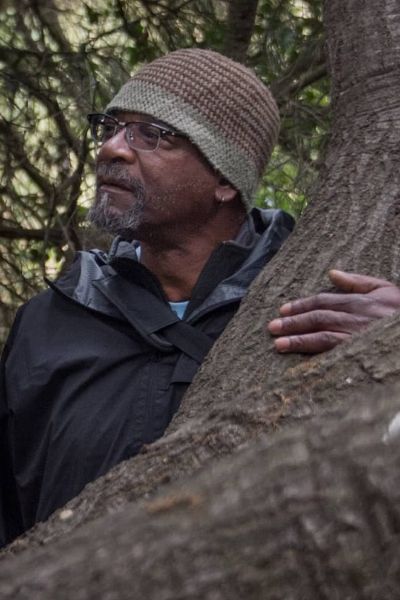Campus News
Alum inspires kids to create a personal relationship with nature
John Sanders’s fascination with the ocean began when he moved with his parents to Venice, Calif. Now he heads a hands-on, science education program in San Luis Obispo.

John Sanders was on a UC Santa Cruz research vessel in the Monterey Bay trying to capture the attention of a group of summer-school kids when a pod of about 16 orcas chased and then attacked a grey whale and her calf.
The students, mostly middle-schoolers from the Monterey Peninsula Unified School District who were part of a summer science program at UC Santa Cruz, watched open-mouthed. Afterward, they pestered Sanders with so many questions about orcas, whales, and marine life that he took them to a library so they could do research for themselves.
“That was an eye-opener for me on how students integrated information,” said Sanders, who now heads his own hands-on, science education program, the Delphinus School of Natural History, in San Luis Obispo. Aimed at kids from age 7 to 12, the three- and five-day camps Sanders offers are aimed at turning screen-fixated kids into mini–field scientists.
Last year, he shepherded some 100 children through his program.
Sanders’s first taste of the natural world came from his maternal grandparents’ 40-acre farm in Laurel, Miss. Because the area was still segregated, Sanders said, there were few stores where the family could shop, so they hunted, fished, and raised beans, potatoes, corn, peanuts, and hogs. The farm was where he learned to recognize the natural cycles of plants and animals.
It was when his parents moved to Venice, Calif., however that Sanders’s fascination with the ocean began. He said he would spend hours roaming the beaches and exploring wetlands. He came to love the quiet of an estuary and the natural silence of the nearby Santa Monica Mountains. He would examine the colors in a single rock, sniff plants to capture their smell, and observe seabirds, and he learned to identify animal footprints. His only restriction was that he had to be home before the streetlights came on.
After graduating with a biology degree from UC Santa Cruz, Sanders joined the campus’s graduate program and was one of the first preceptors at what was then College Eight. In 2002, he got a job as a naturalist as part of Camp KEEP (Kern Environmental Education Program), an outdoor science school for fifth- and sixth-graders in Kern County affiliated with the county’s Office of Superintendent of Schools. He founded Delphinus in 2011.
His camps are built on the idea of exploration and observation, according to Sanders. Instead of lectures, students do water-quality testing around Morro Bay or stroll through chaparral at Montaña de Oro State Park. They hike in Pinnacles National Park, where the 400 species of native bees there open a conversation about the concept of resource allocation, Sanders said. He’ll also take students to a spot near Fairfield where they can explore the San Andreas Fault, or on a trip to examine Morro Rock as an illustration of how plate tectonics moved it from its origin near Los Angeles, 180 miles away. His goal is to show his students how to observe and then let the questions flow into a discussion.
“There’s so much about their environment that these kids don’t know,” Sanders said. “Because they are learning in an environment where they can play as well as explore, they come to enjoy being outdoors.”
The Delphinus School is funded primarily through enrollment fees, which range from $100 to $500 per session, although when Sanders first started, he financed the school with his own money.
“What inspires me is that I’m helping to develop a whole generation of environmental stewards who aren’t just casual observers of nature,” Sanders said.